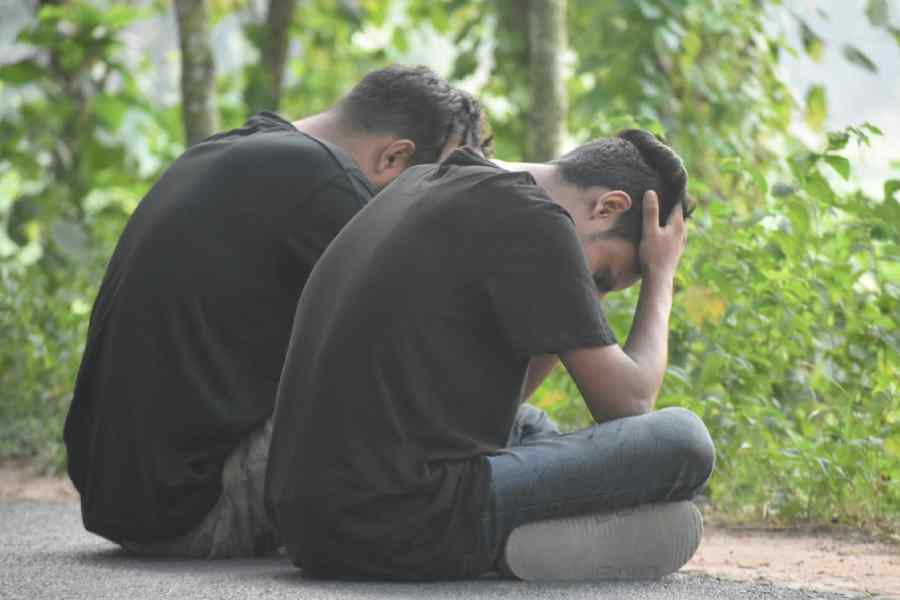An outfit that works with children has started training them in how not to use expletives laced with threats or insinuations of gender-based violations.
At a time crime against women is under the spotlight, the school realised that the everyday language used by the children unknowingly normalised this violence.
Rokeya Shiksha Kendra in Patuli caters to children of unorganised workers in the area and adjoining neighbourhoods off the EM Bypass. Rokeya had opened when a raging pandemic had forced the closure of schools.
Most of the students of the centre — named after Rokeya Sakhawat Hossain (1880-1932), the firebrand feminist writer, educationist and activist — are enrolled in government schools. But the bulk of their learning happens in Rokeya. Besides formal classrooms, film screenings, book reading sessions and theatre are integral parts of their learning.
A "session" on expletives, held recently, was triggered by one hurled by a Class VII student at a batchmate. The impulsive slur was aimed at the mother of the classmate.
"We have had gender sensitisation workshops on menstruation, adolescence, good touch and bad touch. But this session was somewhat spontaneous. When we heard the expletive, we had two options — reprimand the boy and warn him against repeating it or have a frank discussion with them," said Kasturi Basu, documentary filmmaker, activist and one of the founders of Rokeya.
"We cannot shut our ears to these abuses in the garb of some false sense of righteousness. The children know these expletives because they are part of the vocabulary of our society. They keep hearing these slurs at home, school and neighbourhood," she said.
The children were asked to write on a piece of paper the choicest Bengali expletives that they had heard. The result was a list of more than 150 abuses.
Once the list was ready, the meanings of the expletives were explained and they were put under broad categories of insult. The majority of the slurs were aimed at insulting mothers and sisters of the targets.
The financial condition and social status, religion and manhood, or the lack of it, were also among the broad categories the expletives were clubbed under.
Based on extensive discussions, two lists were drawn up on a white board. One had expletives that the children considered most insulting. The left side of the board read:
- I feel most insulted when my mother or sister is abused.
- I am enraged when someone questions my manhood.
- Abusing me for my caste, religion enrages me.
- I am deeply hurt when abused for my poverty.
The right side listed the preferred expletives that the children thought were okay to hurl at someone. Some of those are:
- Women can be insulted.
- It is okay to insult someone else's mother or sister.
- It is okay to make fun of the manhood of someone who is not man enough.
- It is okay to insult someone for being poor or target his family, social status, caste and religion.
- The private part, especially that of men, is an ugly weapon of assault and a widely accepted form of abuse.
A detachable replica of a human torso was used to explain that the private parts were just like any other organs. The students were told that the raging hormones that trigger sexual desires were all controlled by the brain.
"The children understood the contradiction in the mentality that my mother is sacrosanct but someone else's mother can be insulted. We do not expect them to stop using expletives after the session. Tomorrow, some of them may hurl an abuse in a fit of rage. But they will reflect on what they have said," said Basu.
A mental health expert not associated with Rokeya said use of expletives is prevalent among children from marginalised as well as well-heeled families.
"Using expletives is like a defence mechanism for children of marginalised families, to be able to cope with the deprivation they face from society. But even children of well-heeled families use gender-based expletives regularly. However, in these families, it is usually brushed under the carpet," said Sanjay Garg, a psychiatrist.
It is time mainstream schools conducted similar workshops, he said.
"Schools are not only for academics, especially now, when parental influence on children is decreasing. Not acknowledging the problem is not going to help. Just telling them to stop using expletives is not going to work either. Addressing the 'why' is very important here," he said.











